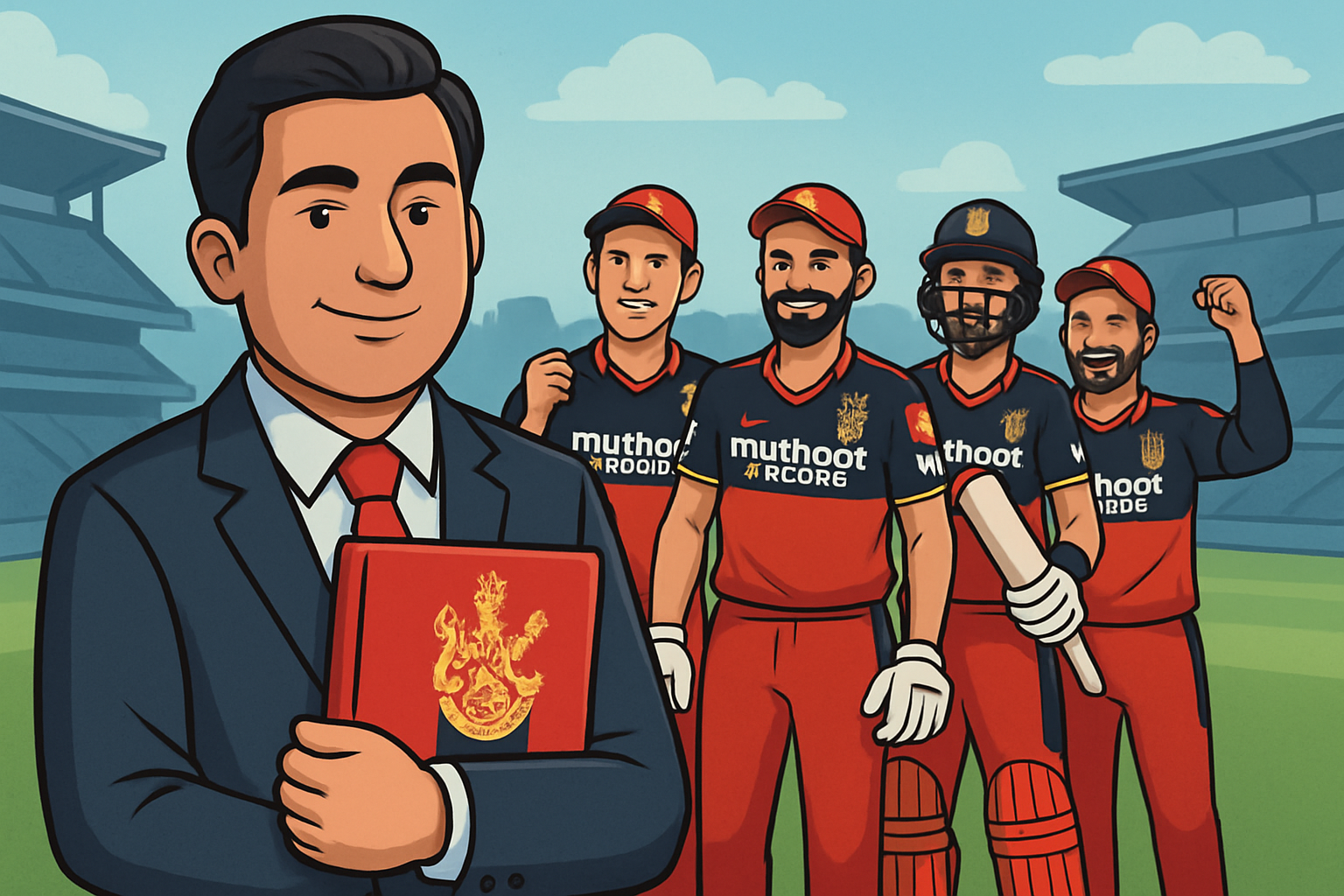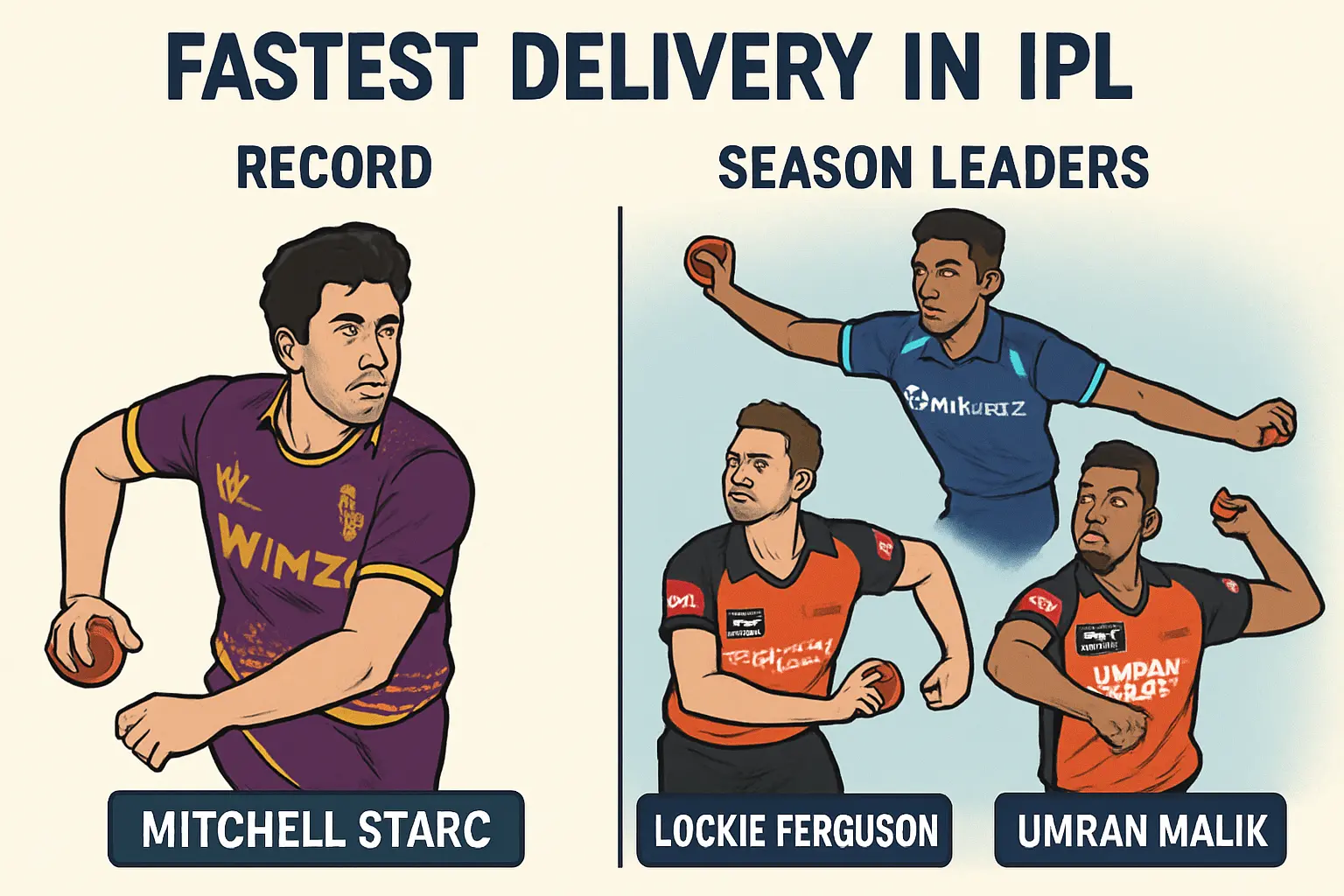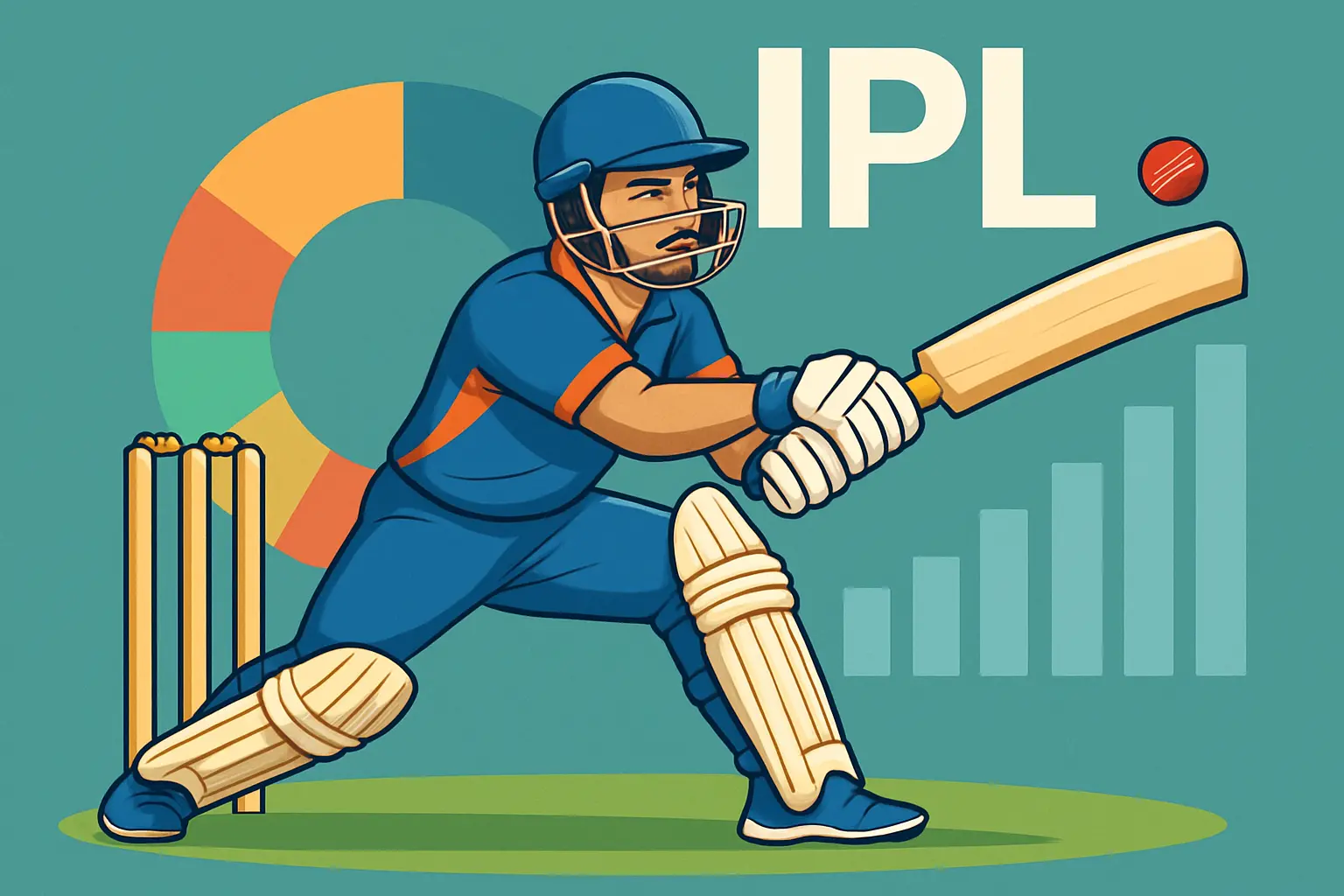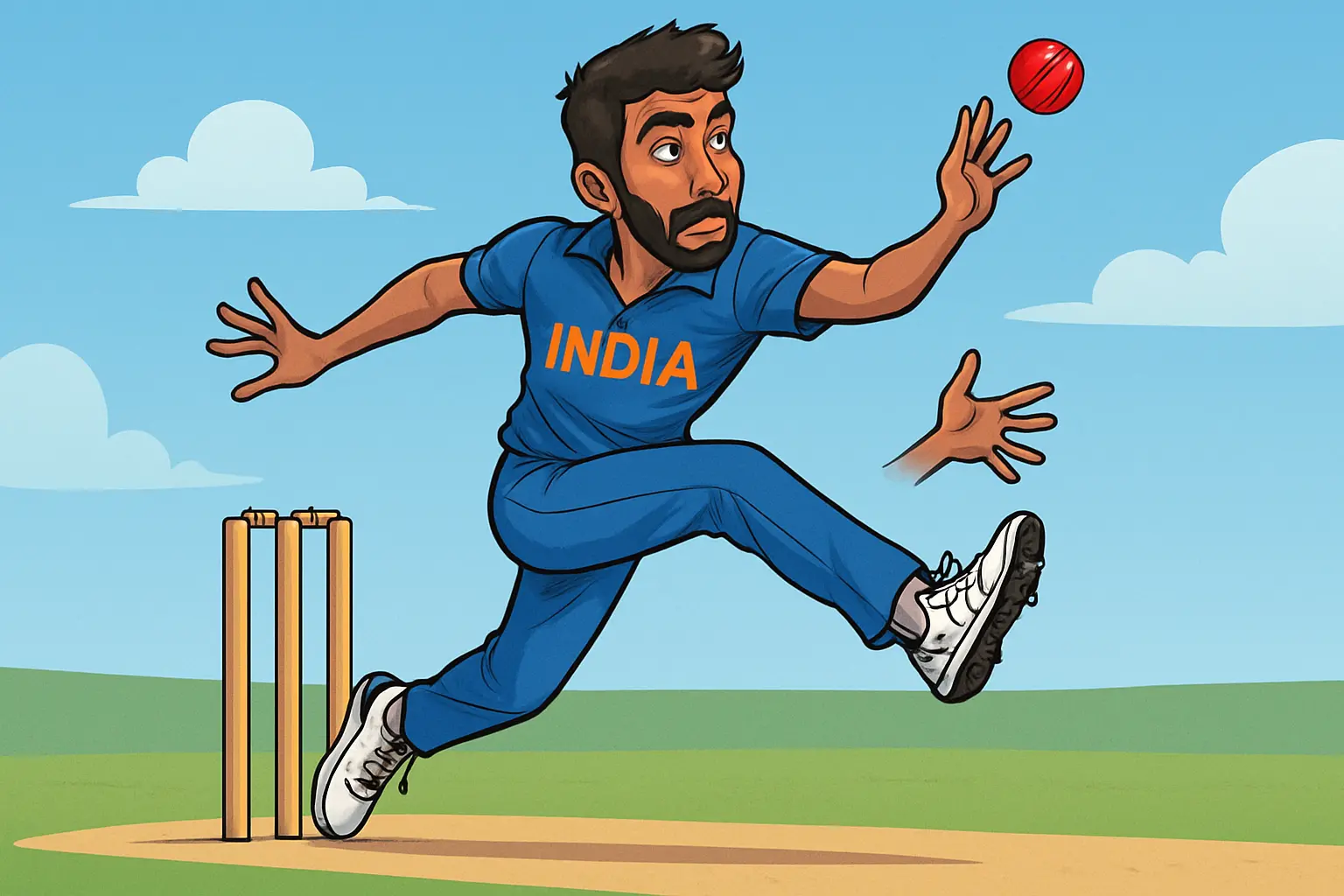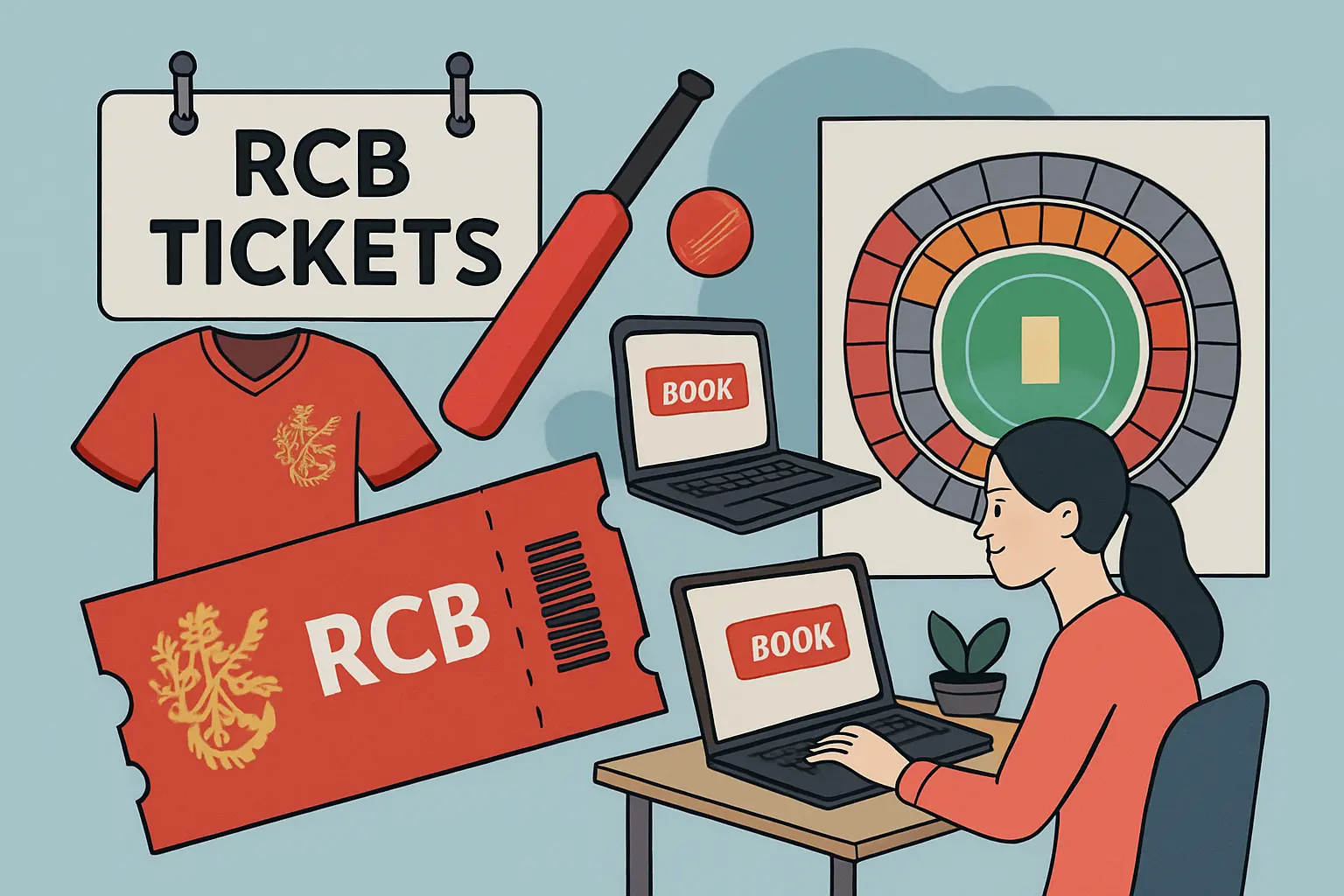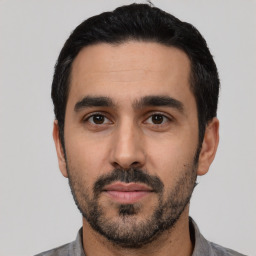Quick answer: Royal Challengers Bengaluru is owned by United Spirits Limited (USL), which is part of Diageo. The franchise is operated through Royal Challengers Sports Pvt Ltd (RCSPL), a wholly owned USL subsidiary.
At-a-glance ownership box
- Owner: United Spirits Limited (USL)
- Parent company: Diageo
- Operating entity: Royal Challengers Sports Pvt Ltd (RCSPL)
- Team brand: Royal Challengers Bengaluru (RCB)
- Home city and stadium: Bengaluru, M Chinnaswamy Stadium
- Also owns: RCB women’s team in the Women’s Premier League (WPL)
Opening note from a cricket business desk
Few IPL teams wear their identity as boldly as RCB. A colosseum-like home ground, a a fan base that can drown out any drumline, a brand that spills beyond boundaries into fashion and music. And behind the noise sits a very structured, decidedly corporate owner. That mix—emotional on the outside, institutional at the core—shapes how RCB recruits, markets, invests and grows.
This is a deep, field-tested look at the RCB team owner: who they are, how the corporate structure actually functions, how the women’s team slots in, what changed when the city label shifted to Bengaluru, and how sponsorships and brand value power the franchise. If you came for a one-line answer, you already have it. If you’re here for the whole story—ownership history, corporate clarity, finances, FAQs in English and Hinglish—settle in.
RCB owner name, owner of RCB, who is the owner of RCB
- Current franchise owner: United Spirits Limited (USL)
- Global parent: Diageo
- Operating company: Royal Challengers Sports Pvt Ltd (RCSPL)
Corporate structure: USL, Diageo and RCSPL explained
It’s common to hear two versions of the answer to “Who owns RCB?” Some will say “United Spirits.” Others say “Diageo.” Both are correct in a layered way, and the layers matter.
Think of it as a simple chain:
Diageo → United Spirits Limited (USL) → Royal Challengers Sports Pvt Ltd (RCSPL) → Royal Challengers Bengaluru (RCB)
- Diageo is a global spirits leader headquartering brand names most adults recognize instantly. It holds a controlling interest in USL.
- United Spirits Limited is the major Indian subsidiary that owns the RCB franchise rights.
- Royal Challengers Sports Pvt Ltd is the wholly owned USL vehicle that runs RCB’s day-to-day sports operations, including both the men’s IPL team and the WPL team.
Why this structure exists
- Risk management and governance: Keeping the sports team inside a discrete subsidiary helps with clear accounting, compliance and oversight.
- Sponsorship agility: RCSPL negotiates its own commercial partnerships while aligning with USL/Diageo brand-safety rules.
- Multi-team efficiency: The operating company model scales neatly between the men’s and women’s teams, esports, academies and content units.
- Clear lines for the BCCI/IPL: The league prefers unambiguous ownership and reporting. A clean corporate stack helps with that.
A quick ownership timeline in phases
Founding era
- The franchise is launched under the broader umbrella of the UB/United Spirits ecosystem.
- The original team identity and market-building begin: bold reds, a royal crest, and a mandate to be the heartbeat of a technology city.
Transition to Diageo control
- Diageo becomes the controlling parent of United Spirits, and, by extension, takes the wheel on governance, audit discipline and oversight.
- The team’s corporate housekeeping strengthens—procurement policies tighten, board committees sharpen, reporting cadence becomes more institutional.
The professionalized RCB
- A professional franchise office builds around the cricket program: content studios, data and performance staff, brand marketing and partnerships teams.
- Investment in the cricket department increases, with specialized roles across scouting, fitness, analytics and player welfare.
Rebrand from Bangalore to Bengaluru
- The franchise aligns its official English identity with the city’s Kannada-rendered name. shirts stay red and gold, but the language on the crest and collateral matches what locals have called their home for generations.
- The rebrand is not an ownership change; it’s a brand-language alignment. The owner remains United Spirits Limited.
Expansion to WPL
- USL brings the same ownership structure to the women’s team. RCSPL operates both sides under one brand family, one fan ecosystem and shared commercial frameworks.
Key clarification on “Is Vijay Mallya still the owner?”
No. RCB today is owned by United Spirits Limited, controlled by Diageo. The public association with earlier promoters belongs to an older era. Operational and ownership control now sits firmly with USL and Diageo.
RCB WPL team owner: one umbrella, two teams
The women’s side is owned by the same corporate parent: United Spirits Limited, operated through RCSPL. This is not a license arrangement with a third party. It’s a single-ownership, multi-team model.
How the WPL piece integrates
- Centralized performance and operations: High-performance systems, analytics tools, recruiting methods and medical protocols are aligned across both teams to the extent competition rules allow.
- Unified storytelling: The same content engine produces media for men and women, with tailored voices. The red-and-gold identity is shared; the tone reflects the athletes.
- Commercial partnerships: Many deals are dual-team, with specific rights carved out where appropriate. That keeps rate cards healthy and offers sponsors twelve-month continuity.
- Fan development: Overlapping season windows keep the brand in-market longer, enabling more memberships, more merchandise drops, and more event hospitality.
RCB ownership history and the long arc of the brand
Every franchise enters the league with a burst of marketing muscle. Sustaining that over so many seasons is different—especially with a fan base that expects excellence and craves a first men’s title. RCB has stayed loud and relevant because the owner invested consistently in three pillars beyond the playing XI.
1) RCB as a culture brand
- Music, fashion-forward kits, fan art and influencer collaborations make the team feel like a lifestyle label as much as a sports club.
- The franchise pioneered some of the most consistent studio-grade content in Indian cricket. That requires budget discipline and leadership buy-in—the fingerprints of a corporate owner that prizes brand equity.
2) RCB as a data-and-development operation
- Recruitment cycles increasingly lean on scouting and analytics, both for Indian domestic talent and overseas players.
- The expansion of specialist coaching roles (power-hitting, spin match-ups, bowling loads, fielding micro-skills) has mirrored trends seen in global franchise leagues.
3) RCB as a commercial engine
- Robust digital reach converts to better sponsorship yields.
- Matchday inventory at M Chinnaswamy—despite a compact capacity compared with some other venues—sells at a premium because the atmosphere is unmatched, television loves the visuals, and brands love guaranteed noise.
Does ownership affect cricketing decisions?
Yes, but not in the way fans think. Owners do not pick the XI. What they do is set the sporting strategy, approve staffing models, and back the Director of Cricket and the head coach with clarity and time. That’s become the RCB way: professionalize the cricket brain trust, fund it properly, and let it do its job—even when social media screams for instant change.
RCB owner company, Diageo and USL: what the money means
Corporate ownership in the IPL isn’t just about paying player salaries. It’s about underwriting five big buckets:
- Cricket operations: salaries of players and staff, analytics systems, scouting, medical, logistics.
- Content and community: studio teams, designers, editors, live production, community managers, regional-language storytellers.
- Marketing and matchday: creative campaigns, in-stadium entertainment, ticketing systems, security, hospitality.
- Youth and pathways: talent identification, trials, academy partnerships, and off-season programs.
- Governance and compliance: audit, risk, legal, contract management, brand safety.
United Spirits, backed by Diageo, brings a balance-sheet sturdiness and compliance muscle that is visible in how the franchise communicates, contracts and grows. It doesn’t guarantee trophies. It does guarantee that the project is not a one-season wonder.
Has the owner changed after the Bengaluru rebrand?
No. The rebrand aligned the name with the city’s common usage. Ownership stayed with United Spirits Limited. The license, the operating company and the control structure did not change.
RCB owner kaun hai? RCB ke malik kaun hai?
- Malik: United Spirits Limited (USL), Diageo group ka hissa.
- Operation: Royal Challengers Sports Pvt Ltd.
- WPL team bhi isi malik ke under aati hai.
Seedha jawab: RCB ka owner USL hai, jiska parent Diageo hai.
Who founded RCB and when did Diageo “take over”?
The franchise was introduced when the league was inaugurated. It sat within the United Spirits/UB sphere at launch. Later, Diageo assumed control of United Spirits as the controlling parent, and therefore RCB moved into a Diageo-controlled corporate framework. The exact dates aren’t the point—the structure is: Diageo on top, USL as Indian owner, RCSPL as the operating company. That’s who owns and runs RCB today.
RCB brand value, revenues and the sponsorship ecosystem
Franchise valuation and brand value
RCB consistently ranks among the most valuable IPL brands. Reasons are straightforward:
- Elite fan engagement: multiple metros claim RCB as their second team after their home side, thanks to a pan-India roster history and magnetic stars.
- Media-friendly: loud, colorful home nights and a stadium that amplifies noise make RCB a broadcaster’s dream.
- Content machine: year-round presence keeps the brand warm between tournaments, lifting the “off-season” baseline.
- City synergy: Bengaluru’s tech-forward ethos pairs naturally with premium sponsors looking for innovation narratives.
Revenue mix
- Central media rights share: Fixed distributions plus performance variables flowing through the league’s central pool.
- Team sponsorships: Principal partner on the jersey front, additional placements on chest, sleeve, back, shorts, and training kit inventory. RCB’s rate card sits at the top of the market.
- Ticketing and hospitality: Matchday ticketing, corporate boxes and premium suites carry strong yields. Bengaluru’s hospitality culture helps.
- Merchandising and licensing: Jerseys, streetwear capsules, caps, accessories and co-branded collabs. Robust digital storefront helps with national delivery.
- Content and IP: Branded content series, behind-the-scenes shows and social IP create sponsor-ready slots beyond static logo placement.
- Events and experiences: Fan parks, pre-season launches, watch parties, community initiatives and premium meet-and-greets.
Sponsor patterns to expect
- A flagship airline or global travel partner, a financial services major, a tech or app-based principal partner, and a rotating cast of category players in e-commerce, automotive, fintech, gaming, beverages and consumer electronics.
- Regional-language broadcast partners often translate into regional brand sponsorships; RCB’s multilingual footprint allows flexible segmentation.
RCB management and cricket operations
Ownership sets the guardrails; the cricket program makes the sporting calls. The modern RCB brain trust typically includes:
- Director of Cricket: Oversees scouting, list management, auction strategy, player development and long-term planning.
- Head Coach and assistants: Tactical planning, role clarity, match-ups, training periodization.
- Analytics and match strategy: Opposition analysis, venue prep, pitch and dew models, powerplay and death-over simulations.
- Medical and performance: Fitness loads, return-to-play protocols, sleep and travel management, nutrition.
- Team management: Player logistics, compliance, media and community engagement.
On the franchise office side:
- Franchise head/CEO: P&L, long-term partnerships, strategic direction.
- Commercial and partnerships: Sponsorship sales, rights management, partner servicing.
- Content and social: Video, design, editorial, live coverage, talent.
- Fan engagement: Memberships, offline events, community groups, supporter clubs.
- Legal and finance: Contracts, risk, audit, statutory compliance.
Is the men’s captain and coach picked by the owner?
Not directly. The owner empowers the cricket leadership to design the team’s tactical identity, then approves senior appointments through the operating company board. It’s collaborative, rigorous and slow by design—modern IPL teams no longer swing between extremes on impulse.
Comparative view: IPL team owners list
A quick look at how RCB sits alongside other franchises in ownership style.
| Team | Owner/Parent Company |
|---|---|
| Chennai Super Kings | India Cements group structure and listed entity ecosystem |
| Mumbai Indians | Reliance Industries/IndiaWin Sports framework |
| Kolkata Knight Riders | Knight Riders Sports Pvt Ltd (celebrity-led consortium) |
| Delhi Capitals | JSW and GMR joint venture |
| Rajasthan Royals | Royal Multisport ownership group |
| Punjab Kings | KPH Dream Cricket Pvt Ltd |
| Sunrisers Hyderabad | Sun TV Network |
| Lucknow Super Giants | RPSG Group |
| Gujarat Titans | CVC Capital Partners entity |
| Royal Challengers Bengaluru | United Spirits Limited (Diageo), via RCSPL |
The pattern is obvious: a blend of industrial houses, media companies, investment firms and professionally run multi-sport entities. RCB’s home in a large, listed beverage company controlled by a global giant places it squarely in the “institutional owner” camp.
Myth-busting: “Does Diageo’s portfolio affect who sponsors RCB?”
Sponsors are screened through brand-safety lenses and category strategies. But RCB’s sponsor family spans many industries, not only beverages. The club courts long-term partners who can co-create content and experiences, not just place logos.
What the Bengaluru rebrand really changed
- Language alignment: The brand name now mirrors the city’s commonly used identity.
- Community connection: Supporter groups and local businesses embraced the change instantly; it felt overdue.
- Global positioning: Bengaluru as a name carries an immediate association with technology and startups, which suits RCB’s content-forward, modern voice.
- No change in owner, license or control: USL remains the owner; RCSPL continues to run operations.
Inside the player auction: where ownership shows up
A day before the auction, RCB’s auction table looks like a mission control room: colored magnets, laptop dashboards, live streams of domestic footage, financial models and phase-by-phase plans. The owner’s influence is visible in three ways:
- Budget clarity: The board pre-approves outlay bands for specific roles (e.g., an overseas power hitter, an Indian wrist spinner). This prevents knee-jerk overspending.
- Risk tolerance: The team’s appetite for backing a comeback candidate or a high-ceiling youngster is debated and documented. Once the call is made, the room sticks to it.
- Process discipline: No grandstanding bids. No “we’ll show them” sprints. If the number breaches the red line, the paddle goes down. That’s corporate governance at work.
RCB owner net worth and financial strength
Searchers often ask for “owner net worth” expecting a single figure. That framing fits an individual owner. RCB’s owner is a large listed company controlled by a global group, so the better lens is corporate capacity:
- Market capitalization and credit profile: Diageo sits among the world’s most valuable beverage companies, with an investment-grade profile. USL is one of India’s largest spirits companies.
- Liquidity and cash flow: Strong enough to back multi-season plans across both men’s and women’s teams.
- Investment posture: Consistent spending on coaching, analytics, and brand—signals of long-term commitment, not seasonal dabbling.
If you must reduce it to a single line: RCB’s owner isn’t a celebrity wallet; it’s an institutional balance sheet. That’s a competitive advantage in a league where planning horizons stretch beyond a single season.
Governance, regulation and the IPL ecosystem
Ownership in the IPL is scrutinized across:
- Shareholding and control: Who ultimately controls the entity owning the franchise.
- Related-party transactions: Stringent disclosures and board oversight.
- Anti-corruption frameworks: Education, monitoring and reporting lines for players and staff.
- Brand integrity: Sponsor categories, messaging, community standards.
USL and Diageo run tight ships globally. That culture filters into RCB’s internal codes, training and documentation. It may feel invisible on match night, but it’s a reason the franchise is seen as professionally run and partner-safe.
RCB and the city: why Bengaluru matters to the owner
A franchise is a town square. Bengaluru’s identity—cosmopolitan, tech-hungry, constantly renewing—fits a team that thrives on content creation and digital-first fan engagement. For a consumer-facing owner like USL and a brand-driven parent like Diageo, that alignment is gold. It lets RCB run:
- Tech-integrated fan experiences: QR-led interactions, app-based memberships and blended offline-online events.
- Data-led retail: Merchandise inventory and design cycles tuned to actual buy patterns.
- Corporate hospitality with a tech twist: Suites and boxes filled with founders, product leaders and partners who blend business with cricket seamlessly.
Women’s cricket and the owner’s long game
The WPL isn’t a CSR project in the RCB house; it’s a business and a sporting priority. Ownership shows commitment through:
- Equal brand treatment: Shared creative horsepower and premium jersey narratives.
- Synchronized scouting: Every window is a chance to find the next breakout star, regardless of gender.
- Commercial conviction: Sponsors are encouraged to invest across both teams, building integrated narratives rather than token slots.
Frequently asked questions (English and Hinglish)
Who is the owner of RCB in the current season?
United Spirits Limited, part of the Diageo group. Operations run through Royal Challengers Sports Pvt Ltd.
Is RCB owned by United Spirits or Diageo?
Both. USL is the Indian owner that holds the franchise rights. Diageo is the global parent that controls USL. Day-to-day operations sit in RCSPL, a USL subsidiary.
Who founded RCB?
The franchise was established at the birth of the league under the United Spirits/UB umbrella. Ownership transitioned to a Diageo-controlled framework when Diageo took control of USL. Today, USL (Diageo) owns RCB.
Is Vijay Mallya still the owner of RCB?
No. Current ownership is with United Spirits Limited under Diageo control. RCB’s operations are conducted through Royal Challengers Sports Pvt Ltd.
Who owns RCB’s women’s team in the WPL?
United Spirits Limited, operated through the same RCSPL entity that runs the men’s team. One owner, two teams.
What is RCB’s brand value and how does the club make money?
RCB ranks among the most valuable IPL brands due to fan engagement, content leadership and matchday atmosphere. Revenues come from the league’s central media pool, sponsorships, ticketing and hospitality, merchandise and licensing, and branded content/IP.
Who is the CEO or head of Royal Challengers (franchise)?
The franchise is led by a designated head or CEO-level leader within RCSPL, with a Chairman at the board level and a Director of Cricket heading sporting strategy. Titles and names may change, but the structure remains: board oversight, franchise leadership, cricket leadership.
Has the owner changed after the Bengaluru rebrand?
No. The rebrand aligned the name with the city’s widely used identity. Ownership stayed with United Spirits Limited and the operating structure remained RCSPL-led.
RCB owner today (concise answer for quick search)
- Owner: United Spirits Limited (Diageo)
- Operating company: Royal Challengers Sports Pvt Ltd
- Applies to both men’s and women’s teams
The sponsorship story: how RCB sells the shirt
RCB’s commercial team sells meaning, not just space. Here’s what that looks like in practice:
- Principal partner: Anchors the jersey front and the season’s storytelling arc—often a multinational consumer brand or a tech-forward Indian leader.
- Co-powered and sleeve inventory: High-frequency visibility in broadcast close-ups and social highlights.
- Training kit ecosystem: Ideal for brands that value high-volume digital content exposure.
- Content IP integrations: Docu-short series, pre-match shows, mic’d-up practice features and locker-room vignettes with branded frames.
- In-stadium activations: Roar meters, halftime challenges, augmented reality overlays and curated music zones.
- Hospitality-led partnerships: Suites named for partners, with catering, gifting and co-branded experiences.
Because the owner is a consumer brand-led organization at heart, RCB never treats sponsors as logo stickers. They behave like content and experience partners. That’s why renewals trend strong and the roster rarely looks like a patchwork of mismatched brands.
RCB versus other IPL owners: governance style
- Celebrity-led consortiums: Great for global PR but can be asymmetric on governance unless the operating company is strong.
- Media conglomerates: Deep content capabilities, distribution advantages and cross-promotion, sometimes conservative on risk.
- Investment funds: Savvy at value creation, focused on returns and exit paths, heavy on performance dashboards.
- Industrial groups: Stable capital, strong local networks, often regionally dominant.
- Consumer brand companies (RCB’s case): Marketing excellence, governance rigor, and a premium on fan experience as a value driver.
A healthy league needs all of these types. RCB’s strength lies in consumer brand thinking married to institutional discipline.
The cricketing heartbeat: how ownership supports the XI
- Auction strategy cycles: Defined needs, pre-priced target lists, and contingency stacks to handle bidding wars.
- Role clarity spending: Instead of one superstar budget, the franchise tries to cover critical roles—top-order anchors, middle-over spin, death bowling, finishing power—within disciplined caps.
- Support staff depth: Owners fund the unseen—throwdown specialists, fielding tech, bowling biomechanics, mental skills coaches.
- Player welfare: Travel comfort, sleep and recovery science, family logistics—small details that add up over a long, high-pressure tournament.
Why “Bengaluru” matters to valuation
A name isn’t just a name. Bengaluru signals:
- Cultural authenticity: Respect for the city’s identity.
- Tech halo: Alignment with innovation, startups and premium services.
- Global recognition: A city brand that multinational partners understand and admire.
All of which makes sponsor conversations easier and more lucrative.
A short guide to the legal entity names you actually see
- United Spirits Limited (USL): The Indian company that owns the franchise rights; board and filings sit here.
- Royal Challengers Sports Pvt Ltd (RCSPL): The operating company that signs players and staff, executes sponsorship contracts, and runs the teams.
- Diageo: The global parent controlling USL, providing oversight and corporate governance frameworks.
When fans say “Diageo owns RCB,” they are acknowledging the ultimate parent. When filings say “USL owns RCB,” they are stating the direct Indian owner. When press releases say “RCSPL announced,” they are referencing the operating arm. Three names, one integrated structure.
M Chinnaswamy: why owners love that cauldron
- Sight and sound: The stadium is a character in the story—TV directors cut to the crowd for a reason.
- Batting-friendly wicket and shorter boundaries on one side: Consistently dramatic T20 cricket attracts eyeballs and inflates highlight reels.
- Central location: Ticket demand is perennially hot; last-mile pains are offset by the joy of a buzzing downtown evening.
- Sponsor-friendly: Visible, loud, photogenic. Hospitality suites stay oversubscribed.
A note on “owner interference”
Every fan has a story about an owner walking into a dressing room somewhere and firing off a speech. RCB’s ownership ethos is the opposite—structured delegation. Feedback travels through the Director of Cricket and head coach. Meetings are planned. Objectives are documented. Results are reviewed after cooling-off periods. It’s grown-up, sometimes boring, and absolutely what high-performance environments need.
RCB squad construction: the owner’s fingerprints without micromanagement
- Overseas balance: A mix of established global match-winners and upside bets that fit specific roles in Bengaluru conditions.
- Indian core: Domestic match-ups matter most. The scouting team watches Syed Mushtaq Ali nights and club circuits obsessively, then models how skills translate to Chinnaswamy.
- Captaincy continuity: Owners value cultural carriers who can represent the brand, keep calm in the noise, and stand behind the process after a tough week.
- Leadership group: The senior group is cultivated over seasons, not stitched last minute. That’s funding plus patience.
Contacting RCB or the owner
- Franchise communications: The official franchise email and media team routes partner and press queries.
- Corporate: USL and Diageo India corporate affairs handle investor and policy communications.
Ownership does not interact directly with fan DMs. If you want to reach the team for community or event requests, the official club channels are your best bet.
RCB’s place in India’s sports-business map
The franchise sits at the junction of sport and entertainment, with a content engine that rivals digital-native startups. It has become:
- A brand lab: Piloting viral formats, meme-friendly clips, fan docu-series and social listening loops that turn feedback into product.
- A partner campus: Where brands test experiential tech, sustainable matchday initiatives and creator-led campaigns.
- A talent magnet: Not just cricketers—designers, editors, data scientists, physiologists, community managers.
The women’s team cements this. For a new generation of fans, RCB equals a house of cricket, not just a men’s lineup.
Understanding “owner of RCB” through the finance lens
- Central league economics: Media rights feed all teams; the league model is a rising tide.
- Cost structure: Cricket ops and content ops are the two biggest buckets at most franchises of RCB’s size.
- Margin drivers: Deeper playoff runs, star-led social growth, higher renewal rates for sponsors, premium hospitality uptake.
- Risk mitigants: Multi-year sponsor contracts, diversified content revenue, academy and grassroots programs that feed talent and community goodwill.
RCB’s corporate parent is built for this: steward brand equity, constrain the downside, lean into growth channels that turn passion into revenue.
Owner narratives: what casual fans get wrong
- “Ownership changed when the name changed.” It didn’t.
- “The owner picks the playing XI.” They don’t.
- “Net worth equals trophies.” It doesn’t. Money buys structure; structure buys consistency; consistency gives you a crack at trophies.
- “WPL is a sideshow.” Not here. It is integral to the RCB program.
Why this ownership model suits RCB
- Bengaluru’s brand DNA: A global city with global sponsors wants a global-grade owner.
- Modern cricket demands: Analytics, high performance, content, fan-tech—these are corporate-scale investments.
- Long horizons: Fanbases can’t be rebuilt overnight. Ownership that thinks in decades, not weeks, is the right fit.
Closing perspective: the roar, the rigor and the red thread
Walk into the Chinnaswamy on a big night and you feel something primal—banners, chants, a rising drumline that can rattle a bowler’s heart rate from sixty meters away. That theatre carries a simple narrative: passion. But peel back the red cloth and you find rigor. Contracts drafted with precision. Recruitment boards laid out with logic. Content calendars stitched to launch days and algorithm tides. That backstage belongs to the owner.
United Spirits Limited, backed by Diageo, owns RCB through Royal Challengers Sports Pvt Ltd. The WPL team sits under the same roof. The rebrand to Bengaluru aligned words with reality on the ground; it didn’t move a single share. And the franchise’s value sits on a flywheel: crowd energy feeds content, content feeds partners, partners feed investment, investment feeds performance. That flywheel only turns when the owner is clear-eyed and consistent.
So the next time a wicket falls and the city gasps in a single voice, remember—behind the spectacle is a structure, and behind the crest is a company that knows exactly what it owns: a cultural institution built on cricket. That’s RCB. That’s the owner. And that’s why the roar keeps coming back, season after season.

